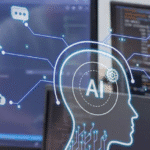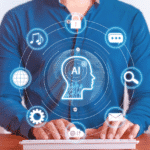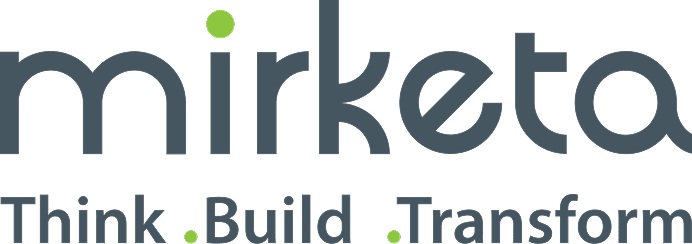What Does a Salesforce IoT Developer Do? A Beginner-Friendly Guide
Author
August 4, 2025
Introduction to Salesforce IoT Developer
The world is becoming more connected every day. From smart home devices to industrial machines, everything is talking to everything. This new reality is powered by the Internet of Things (IoT). But how does all this data get into your business systems like Salesforce? That’s where a Salesforce IoT developer comes in.
In this blog, we’ll explain who a Salesforce IoT developer is, what they do, and how they help businesses. If you’re new to the concept, don’t worry—we’ll keep it simple and easy to understand.
What Is Salesforce IoT?
Before we talk about developers, let’s quickly understand what Salesforce IoT is.
Salesforce IoT is a feature within Salesforce that connects data from physical devices (like sensors, machines, or smart gadgets) to the Salesforce platform. It lets businesses take action based on real-time data from these devices. For example, a smart fridge can tell Salesforce when it needs a service, and Salesforce can automatically create a support ticket.
In short, Salesforce IoT helps businesses react quickly to what their products or customers are doing in real life.
Who Is a Salesforce IoT Developer?
A Salesforce IoT developer is a professional who builds, configures, and manages IoT solutions inside the Salesforce ecosystem. They use tools like Salesforce IoT Cloud (or Salesforce’s integration with other IoT platforms) to connect physical devices to customer data and workflows.
Their goal? To help businesses turn live data into useful actions—like sending alerts, creating tasks, updating dashboards, or even automating customer support.
What Does a Salesforce IoT Developer Do?
Let’s break down the key tasks a Salesforce IoT developer handles:
Connect Devices to Salesforce
The first job of a Salesforce IoT developer is to connect physical devices to Salesforce. These devices could be anything—vehicles, home appliances, factory machines, or wearable tech.
They use APIs, data connectors, or platforms like AWS IoT and Azure IoT Hub to bring this device data into Salesforce.
Create Rules and Logic
Once data flows into Salesforce, it needs meaning. That’s where business logic comes in.
The developer sets up rules, conditions, and actions. For example:
“If the temperature sensor crosses 100°F, create a case in Service Cloud.”
This logic allows Salesforce to take real-time action without human effort.
Automate Workflows
Using Salesforce tools like Process Builder, Flow, and Einstein AI, the IoT developer builds automated workflows. This helps businesses act fast—often before a customer even knows there’s a problem.
For instance, a smart air conditioner might detect a filter issue and trigger a technician appointment automatically.
Ensure Security and Scalability
IoT data can be sensitive. A Salesforce IoT developer ensures that device data is secure and encrypted. They also design the solution so it works smoothly even when thousands of devices are connected.
Skills Every Salesforce IoT Developer Should Have
If you’re thinking about hiring—or becoming—a Salesforce IoT developer, here are the top skills to look for:
Salesforce Platform Expertise
A deep understanding of Salesforce products like Sales Cloud, Service Cloud, and IoT Cloud is essential.
API Integration Skills
Developers must know how to work with REST APIs, Webhooks, and message queues to bring external device data into Salesforce.
Knowledge of IoT Protocols
Basic familiarity with protocols like MQTT, CoAP, and HTTP helps in setting up device communication.
Data Modeling and Logic Building
They need to design smart data flows and create real-time rules that turn raw data into business insights.
Security and Compliance Understanding
IoT data must be protected. Developers should know how to handle user data responsibly and follow industry regulations.
Use Cases: Where Salesforce IoT Developers Make a Difference
Let’s look at a few real-world examples where a Salesforce IoT developer brings value:
Automotive Industry
A car manufacturer installs sensors in vehicles. These sensors track mileage and engine performance.
The Salesforce IoT developer sets up a system that creates a service reminder in Salesforce when a car reaches 10,000 miles.
Healthcare
Medical devices track patient vitals. When abnormal readings are detected, Salesforce automatically sends alerts to doctors.
The developer builds this flow using secure, HIPAA-compliant connections.
Manufacturing
Machines in a factory send real-time status updates. If a machine stops, the system notifies the maintenance team immediately.
Thanks to the developer, downtime is reduced, and productivity increases.
Smart Home Products
A smart thermostat detects that a user’s house is too cold. The system checks the warranty and dispatches a technician.
The IoT developer creates this full journey—from sensor data to customer care—inside Salesforce.
Why Businesses Need a Salesforce IoT Developer
You might be wondering: Why not just use an out-of-the-box integration tool?
The truth is, every business has unique workflows, devices, and data needs. A Salesforce IoT developer customizes the solution to match your business goals. They ensure that your systems talk to each other smoothly—and more importantly, act on real-time insights.
Here’s what a good developer helps you achieve:
- Faster response times
- Better customer service
- Reduced manual work
- Predictive maintenance
- Stronger customer relationships
Challenges a Salesforce IoT Developer Can Solve
Like all technology projects, IoT integrations can face challenges. A Salesforce IoT developer helps solve problems such as:
Disconnected systems
They build APIs and connectors to link all your tools with Salesforce.
Unstructured or messy data
They clean, filter, and map device data into a useful format.
Delayed actions
They create real-time triggers and workflows for faster response.
Security concerns
They ensure encryption, access controls, and compliance.
Tools a Salesforce IoT Developer Uses
To build a strong IoT solution in Salesforce, developers use a mix of tools:
- Salesforce IoT Cloud (for native support)
- Salesforce Flow and Apex (for automation and logic)
- Heroku (for custom applications and services)
- Middleware platforms like MuleSoft
- IoT hubs like AWS IoT, Azure IoT, or Google Cloud IoT
They choose the right tools based on your business size, use case, and device types
How to Hire a Salesforce IoT Developer
If you’re ready to connect your devices to Salesforce, you’ll need a skilled developer. Here’s what to look for:
- Certifications in Salesforce Platform and integration
- Past experience with IoT projects
- Problem-solving ability and a clear communication style
- Understanding of data privacy laws and device security
- Comfort with both technical tasks and business goals
You can hire a Salesforce IoT developer as a freelancer, through a consulting firm, or as part of your in-house tech team.
Final Thoughts
A Salesforce IoT developer bridges the gap between the physical and digital world. They connect devices to data and data to action. With their help, businesses can react faster, serve customers better, and make smarter decisions.
As the Internet of Things grows, so does the need for skilled developers who understand how to bring real-time data into systems like Salesforce.
If you want to stay ahead in a connected world, now is the time to explore how a Salesforce IoT developer can transform your business.
Frequently Asked Questions (FAQs)
1. What is a Salesforce IoT developer?
A Salesforce IoT developer is someone who connects real-world devices—like machines, sensors, or appliances—to Salesforce. They help businesses collect data from these devices and use it to trigger actions, like creating service requests or sending alerts.
2. Do I need a Salesforce IoT developer for my business?
If your business uses smart devices or collects real-time data from equipment, then yes—you can benefit from hiring a Salesforce IoT developer. They help you make the most of that data by linking it with your CRM and automating important actions.
3. Can Salesforce handle data from devices like sensors or machines?
Yes! Salesforce, especially with tools like Salesforce IoT Cloud or integrations through MuleSoft or Heroku, can process data from all kinds of devices. A Salesforce IoT developer sets up those connections and builds the logic to take action based on that data.
4. What’s the difference between a Salesforce developer and a Salesforce IoT developer?
A regular Salesforce developer focuses on customizing and building features inside Salesforce. A Salesforce IoT developer, on the other hand, specializes in connecting physical devices to Salesforce and automating actions based on real-time data from those devices.
5. What tools does a Salesforce IoT developer use?
Some common tools and platforms include:
- Salesforce IoT Cloud
- Salesforce Flow and Apex
- MuleSoft (for integrations)
- Heroku (for custom apps)
- IoT platforms like AWS IoT, Azure IoT, and Google Cloud IoT
6. Is Salesforce IoT only for big companies?
Not at all. Even small and mid-sized businesses can benefit from IoT. For example, a smart product company with connected devices can improve customer service by using IoT data in Salesforce. A Salesforce IoT developer can build a right-sized solution that fits your business.
Applications of IoT
- Smart Homes: IoT enables automated control of home devices, offering conveniences such as automated lighting and security systems. Companies like Ring, Ecobee, and Nest are leading the development of smart home solutions.
- Smart Wearables: These devices monitor health and fitness, providing valuable data through continuous monitoring. The challenge lies in creating energy-efficient and compact devices.
- Connected Cars: Major brands like Tesla and BMW are developing smart cars that enhance performance, maintenance, and user comfort through inbuilt sensors and internet connectivity.
- Smart Retail Stores: Retailers can enhance customer experiences by tracking in-store movements and improving product placement, leading to increased revenue and customer satisfaction.
- IoT in Healthcare: Connected healthcare devices collect patient data, facilitating custom-tailored medical solutions. This technology aims to improve patient outcomes and streamline hospital operations.
- Smart Cities: IoT can transform urban living with smart surveillance, automated public transport, and energy management, addressing issues like pollution and traffic congestion.
Salesforce IoT Salesforce, a leader in customer experience, leverages IoT to bridge the gap between IoT infrastructure and customer engagement. The Salesforce IoT Cloud, powered by Thunder, processes massive amounts of data in real time. This allows businesses to:
- Gather data from various devices and integrate it with customer context data for a comprehensive view.
- Develop intuitive tools for rapid innovation in IoT-driven customer experiences.
- Identify significant events and trigger real-time responses in Salesforce clouds or third-party services.
Conclusion
The future of IoT promises a world of interconnected devices, enhancing everyday life and business efficiency. While challenges like data security remain, the potential benefits make IoT a transformative technology for the future.
Recent Posts
-
 Salesforce API Testing – The Modern QA Approach for Reliable Integrations05 Jan 2026 Blog
Salesforce API Testing – The Modern QA Approach for Reliable Integrations05 Jan 2026 Blog -
 Transforming SMB Sales with Salesforce Commerce Cloud12 Nov 2025 Blog
Transforming SMB Sales with Salesforce Commerce Cloud12 Nov 2025 Blog -
 Generative AI Testing tools03 Nov 2025 Blog
Generative AI Testing tools03 Nov 2025 Blog -
 Mirketa Unveils Next-Gen AI Solutions to Redefine the Future of Work Across Industries29 Jul 2025 Press Release
Mirketa Unveils Next-Gen AI Solutions to Redefine the Future of Work Across Industries29 Jul 2025 Press Release -
 Salesforce Implementation School Universities Higher Education23 Jul 2025 Blog
Salesforce Implementation School Universities Higher Education23 Jul 2025 Blog -
 Salesforce Health Cloud Implementation Partner: A Complete Guide23 Jul 2025 Blog
Salesforce Health Cloud Implementation Partner: A Complete Guide23 Jul 2025 Blog -
 XML Parsing: Using MINIDOM Vs Element Tree (etree) in Python02 Jul 2025 Blog
XML Parsing: Using MINIDOM Vs Element Tree (etree) in Python02 Jul 2025 Blog -
 A step by step Guide to create Salesforce web-to-lead form30 Jun 2025 Blog
A step by step Guide to create Salesforce web-to-lead form30 Jun 2025 Blog
You Have Questions,
We Have Answers
Talk to our experts today and explore how we can help you build a connected and efficient digital ecosystem.














